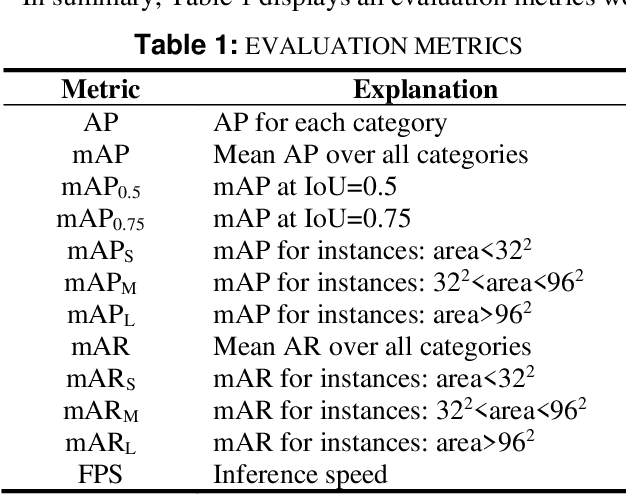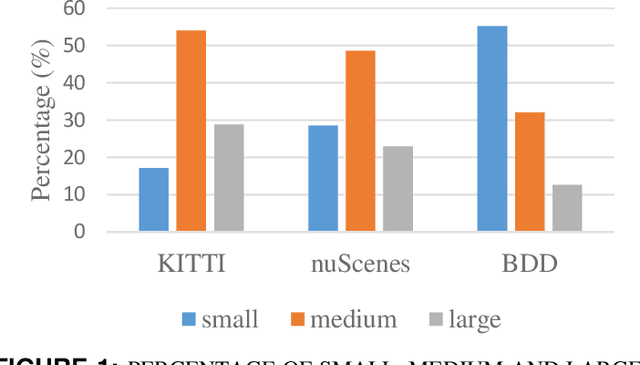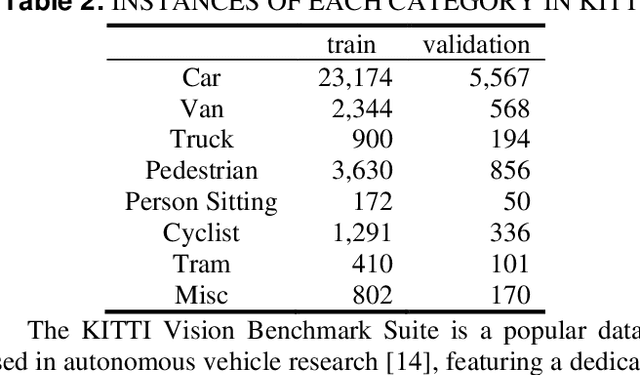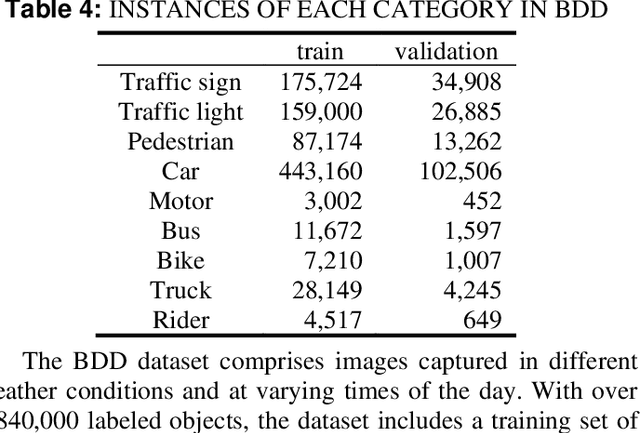The Impact of Different Backbone Architecture on Autonomous Vehicle Dataset
Paper and Code
Sep 15, 2023



Object detection is a crucial component of autonomous driving, and many detection applications have been developed to address this task. These applications often rely on backbone architectures, which extract representation features from inputs to perform the object detection task. The quality of the features extracted by the backbone architecture can have a significant impact on the overall detection performance. Many researchers have focused on developing new and improved backbone architectures to enhance the efficiency and accuracy of object detection applications. While these backbone architectures have shown state-of-the-art performance on generic object detection datasets like MS-COCO and PASCAL-VOC, evaluating their performance under an autonomous driving environment has not been previously explored. To address this, our study evaluates three well-known autonomous vehicle datasets, namely KITTI, NuScenes, and BDD, to compare the performance of different backbone architectures on object detection tasks.
 Add to Chrome
Add to Chrome Add to Firefox
Add to Firefox Add to Edge
Add to Edge